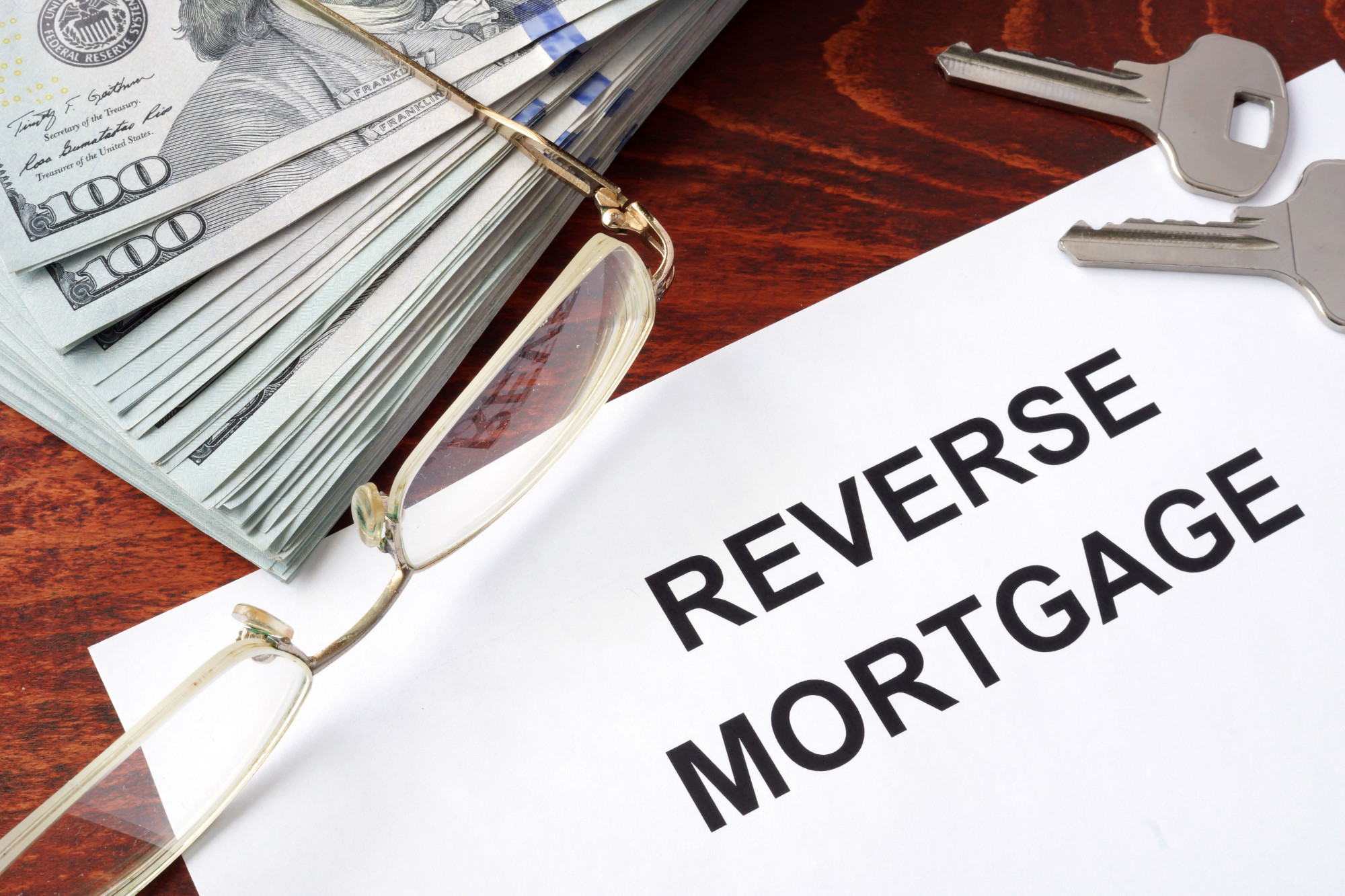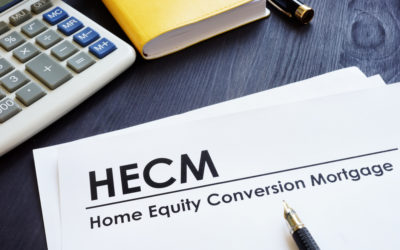The majority of older Americans are in debt, as high as 70%. If you are a homeowner over the age of 55, you may be able to get a jumbo reverse mortgage to help with your debt. A jumbo reverse mortgage allows you to tap into your home equity, giving you the option of receiving a lump sum or monthly payments.
This type of mortgage can be a great way to supplement your retirement income or pay for medical expenses. Find out more about jumbo reverse mortgages in this article to determine if one is right for you.
What Is a Reverse Mortgage?
A reverse mortgage is a loan against your home’s equity that doesn’t require selling your house. The loan amount depends on the age of the borrower, the current market value of the home, and current interest rates.
A reverse mortgage can serve any purpose, including home improvements, paying off debt, or covering medical expenses.
How Do Reverse Mortgages Work?
If you are a homeowner age 62 or older and have equity in your home, you may be eligible for a reverse mortgage. You don’t have to pay off a reverse mortgage loan until you die, sell the home, or move out of the home. There are no income or credit requirements to qualify for a reverse mortgage.
To qualify for a reverse mortgage, all you need is to be 62 years or older and own your home outright or have a small mortgage balance remaining. You can use the proceeds from the reverse mortgage loan to pay it off.
This home must be your main residence. If you live with a spouse that is younger than 62, they may not be included in the reverse mortgage loan.
What Is a Jumbo Reverse Mortgage?
This type of mortgage is only available to high-value homeowners through private lending institutions. Jumbo loans offer seniors the opportunity to tap into more of their home equity than a traditional reverse mortgage.
Benefits of Jumbo Reverse Mortgages
Jumbo reverse mortgages can be a great way for seniors to tap into their home equity without having to worry about making monthly payments.
Private lenders do not require mortgage insurance as the FHA does, and you can access it at a younger age. You can get a jumbo loan at age 55, while the earliest you can get an FHA-insured reverse mortgage is 62.
You can use jumbo loans to pay off a larger mortgage balance, giving seniors more financial freedom. Jumbo reverse mortgages have loan limits that are higher than traditional reverse mortgages. This means that borrowers can access more of their home equity.
Private lenders are not subject to the same rules and regulations as the government, so they can offer more flexible terms and conditions. The mortgage protection is equivalent to that offered by the FHA and also includes non-recourse protection.
What is Non-recourse Protection?
With non-recourse protection, if the loan balance exceeds what your home is worth, you will not be responsible for paying the difference. The lender will absorb the loss. This type of protection is not available with a traditional reverse mortgage. This protects your heirs from having to sell your home to repay the loan.
Cons of a Jumbo Reverse Mortgage
The main disadvantage of a jumbo reverse mortgage is that it is not backed by the government. This means that if the lender goes out of business, your loan may not be repaid. It is important to do your research and choose a reputable lender.
Another downside is that interest rates may be higher. Since the FHA does not insure jumbo reverse mortgages, borrowers are not protected if the lender goes out of business.
Jumbo reverse mortgage interest rates are typically higher than traditional reverse mortgage rates. The loan balance of a jumbo reverse mortgage will increase over time. If the borrower lacks a plan to repay the loan, this can work against them.
Jumbo Reverse Mortgage Eligibility
Borrowers must still qualify for a jumbo reverse mortgage. This means that they must have a good credit history and enough income to make monthly payments. In order to qualify for a jumbo reverse mortgage, you must:
- Be 55 years or older
- Own your home outright or have a low mortgage balance
- Live in the home as your primary residence
- Have a home with a value of $1,000,000 or more
Not everyone will qualify for a jumbo reverse mortgage. The requirements are stricter than traditional reverse mortgages.
How Much Money Can I Borrow With A Jumbo Reverse Mortgage?
Depending on your home value, your age, and current interest rates, you can take out a lot of money with a jumbo reverse mortgage. Generally speaking, the older you are and the more equity you have in your home, the more money you can borrow.
It is possible to get up to $4 million dollars with a jumbo reverse mortgage. To get an idea of how much money you could qualify for, use our reverse mortgage calculator.
How Do I Apply For A Jumbo Reverse Mortgage?
The application process for a jumbo reverse mortgage is similar to that of a traditional reverse mortgage. You will need to provide the lender with information about your income, assets, and debts. You will also need to have your home appraised.
The lender will use the appraised value of your home to determine how much money you can borrow. Once you have applied for the loan, the lender will give you a list of documents that you will need to provide in order to complete the loan process. These documents may include:
- Your most recent tax return
- Your mortgage statement
- Proof of homeowners insurance
- An appraisal of your home
- A credit report
The application process can take several weeks to complete. Once the loan is approved, you will need to attend a counseling session with a HUD-approved counselor. This counseling is required by the government and can help you understand the terms of your loan and what to expect.
Once you have completed the counseling session, you will sign the loan documents, and the money will be disbursed to you.
If you are considering a jumbo reverse mortgage, it is important to compare offers from multiple lenders. Shop around to get the best interest rate and terms. Be sure to ask about fees, closing costs, and repayment options. And make sure to choose a reputable lender who has experience in handling jumbo reverse mortgages.
If you have questions about reverse mortgages, contact a HUD-approved housing counselor. Housing counselors can help you understand the process and decide if a reverse mortgage is right for you.
Jumbo Reverse Mortgage Fraud
Unfortunately, there are some unscrupulous lenders who prey on seniors by promising them a jumbo reverse mortgage when they do not actually qualify. These lenders may charge high fees and closing costs, and the borrower may end up owing more money than they would with a traditional mortgage.
If you are considering a jumbo reverse mortgage, be sure to do your research and choose a reputable lender. Compare offers from multiple lenders and ask about fees, closing costs, and repayment options. And make sure to attend the required counseling session with a HUD-approved counselor before signing any loan documents.
Do I Need A Lawyer?
You are not required to have a lawyer when applying for a jumbo reverse mortgage, but you may want to consider hiring one to help you understand the terms of the loan and the application process. A lawyer can also help you make sure that you are dealing with a reputable lender.
When Is The Jumbo Reverse Mortgage Repayable?
The loan becomes repayable when the borrower dies, sells the property, or permanently moves out of the home. The loan can also be repaid if the home is no longer the borrower’s primary residence or if the borrower fails to keep up with property taxes and homeowners insurance payments.
If the property is in need of repairs and the borrower is not getting it repaired, the loan may become due.
It is important to note that a jumbo reverse mortgage is a non-recourse loan. This means that the heirs or the borrower or their heirs will never be responsible for more than the cost of their home when payment becomes due.
What Fees Are You Responsible For?
There will be fees associated with the loan, including origination fees, appraisal fees, and closing costs. These fees can add up to several thousand dollars. The borrower is responsible for paying the following fees:
- The origination fee, which is a percentage of the loan amount (typically 2% to 3%)
- The appraisal fee
- The counseling fee
- The title insurance fee
- The recording fee
- Other miscellaneous fees
What Are The Interest Rates?
Interest rates are higher on jumbo reverse mortgages than those on traditional mortgages. This is because they are higher-risk loans. The interest rate will be determined by the lender and depends on the borrower’s age, the value of their home, and the type of loan they choose.
Some lenders offer adjustable-rate loans, which means that the interest rate can change over time. Others offer fixed-rate loans, which means that the interest rate will remain the same for the life of the loan.
What Are The Loan Terms?
Loan terms on jumbo reverse mortgages are typically shorter than those on traditional mortgages. This is because they are higher-risk loans. The loan repayment period will be set by the lender and will be based on several factors, including the borrower’s age, home equity, and the kind of loan they select.
Some lenders offer loans with terms as short as 5 years, while others offer loans with terms of 30 years or more.
What Can I Do With The Money From A Jumbo Reverse Mortgage?
The money from a jumbo reverse mortgage can serve any purpose. Some common uses include:
- Paying off existing debt
- Making home improvements
- Covering medical expenses
- Supplementing retirement income
- Paying for long-term care
Can I Get Out of a Jumbo Reverse Mortgage Loan?
Yes. Borrowers have the right to cancel their loan within three days of signing the loan documents.
After that, they may only cancel the loan if they sell the home, move out of the home permanently, or die. If the borrower wants to cancel the loan after the three-day period, they will need to repay the loan.
Can My Spouse Continue To Live In The Home If I Die?
If the borrower dies, their spouse may continue to live in the home as long as they meet the requirements of the loan. These requirements include making sure that the property taxes and homeowners insurance are up to date and keeping the home in good repair. If the spouse does not meet these requirements, the loan will become due and payable.
What Happens If I Can’t Repay the Loan?
If the borrower cannot repay the loan, the lender will foreclose on the property. This means that the lender will take ownership of the home and sell it to repay the loan.
If the sale of the home does not cover the loan amount, the borrower’s heirs will not be responsible for paying the difference. This is because the loan is a non-recourse loan.
Deal with a Reputable Lender
A jumbo reverse mortgage is a great way to access the cash you need without selling your home. They offer a higher loan yield than traditional reverse mortgages and can serve any purpose you choose.
Good Life Home Loans can help you determine if a jumbo reverse mortgage is right for you. Start by determining how much you’re eligible to receive by using our mortgage calculator here. We’ll take care of the rest.

 1-866-840-0279
1-866-840-0279


